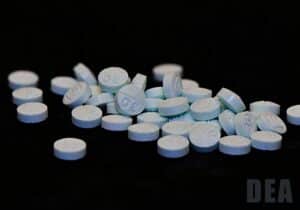Opioids, while effective in pain management, have a deep impact on the brain’s ability to regulate breathing. In high doses, opioids pose a significant overdose risk, characterized by dangerously slowed or stopped breathing. This is why an opioid overdose is considered a dire medical emergency. Iris Wellness Group is committed to providing comprehensive support to those struggling with opioid addiction in Chattanooga, TN. Don’t hesitate to seek help for yourself or a loved one. Contact our opioid rehab at 423-441-4650 to begin a journey toward recovery.
What is an Opioid Overdose?
Opioid overdose remains a critical health concern, mainly because these drugs depress the brain’s ability to regulate respiration. Spotting an opioid overdose involves recognizing several indicators:
- Constricted, pinpoint pupils.
- Unconsciousness or inability to wake up.
- Breathing difficulties, which can be life-threatening.
Statistics paint a grim picture. In 2019, drug-related deaths worldwide reached approximately 600,000, with opioids responsible for about 80% of these deaths. The World Health Organization reported that opioid overdoses alone accounted for about 125,000 deaths in 2019. Non-fatal overdoses are more common but no less concerning.
The increase in opioid overdoses globally can be linked to the wider availability of these drugs for pain management and the arrival of more potent synthetic opioids on the illicit market. In 2019, the U.S. saw 70,630 drug overdose deaths, nearly half of which involved synthetic opioids. The rates have escalated alarmingly, with a 1040% increase in deaths from synthetic opioids from 2013 to 2019. The COVID-19 pandemic has exacerbated this situation, leading to a surge in overdose deaths, mainly from synthetic opioids.
Fentanyl, a synthetic opioid much stronger than morphine, is widely used for pain relief and as an anesthetic. Despite its inclusion in the WHO Model List of Essential Medicines, the misuse of fentanyl and similar analogues has significantly contributed to the spike in overdose deaths. Drug dealers often lace other drugs with fentanyl or create counterfeit pills, unknowingly increasing the risk for users.
What are the Signs of an Opioid Overdose?
Quick identification and response to an opioid overdose are crucial. Key signs of an opioid overdose include:
- Pupils reduced to small dots.
- Unresponsiveness or unconsciousness.
- Shallow, labored breathing.
- Choking or gurgling sounds.
- Nausea and vomiting.
- Limpness and physical weakness.
- Pale, blue, or cold skin.
- A weak or undetectable pulse.
- Purple or blue discoloration of lips and nails.
Immediate action is essential in these situations.
What Causes an Opioid Overdose?
Opioid overdoses can occur under various scenarios:
- Recreational use aiming for a high.
- Misusing prescribed opioids, either intentionally or accidentally.
- Combining opioids with other substances, like alcohol or medications.
- Using someone else’s prescribed opioid medication.
- Improper use of Medications for Opioid Use Disorder (MOUD).
Being aware of these causes and using opioids responsibly are key to preventing overdoses.
Who is at Risk of an Opioid Overdose?
Certain factors elevate the risk of opioid overdose:
- Using illicit, non-prescribed opioids.
- Exceeding the prescribed dosage of opioids.
- Combining opioids with other substances or alcohol.
- Having pre-existing health conditions like sleep apnea or compromised organ function.
- Age-related vulnerabilities, especially in individuals over 65.
Being aware of these risk factors is crucial for preventing opioid overdoses. If you or someone you know falls into these risk categories, it’s important to exercise caution and seek guidance from healthcare professionals.
Prevention of Opioid Overdose
To prevent opioid overdoses, it’s important to implement measures such as:
- Expanding treatment options for opioid dependence.
- Rationalizing and monitoring opioid prescriptions.
- Regulating the sale of opioids over the counter.
Despite these recommendations, there’s a notable gap in their implementation. Currently, only about half of the countries worldwide provide access to effective opioid dependence treatments. Moreover, less than 10% of people globally who need such treatment are actually receiving it, highlighting a significant area for improvement in addressing the opioid crisis.
Treating Opioid Overdose
In the event of a suspected opioid overdose:
- Immediately call emergency services (911).
- Perform CPR if the person is not breathing well or at all, provided you are trained.
- Administer Naloxone, an opioid overdose-reversing medication, if available.
It’s really important for family members, caregivers, and anyone who spends a lot of time with people who use opioids to know the warning signs of an overdose. They should also know how to help out in these critical moments before the medical professionals arrive. Keep in mind, someone who’s having an opioid overdose can’t help themselves – they can’t give themselves any treatment. That’s why it’s super important to understand about naloxone, a life-saving medication used in these emergencies. You should know where to get it and how to use it. Don’t forget to talk to your healthcare provider for advice on how to get naloxone in your area, and for more tips on what to do if you’re ever faced with an overdose situation.
Opioid Overdose Treatment at Iris Wellness Group
Iris Wellness Group is a haven for those fighting opioid addiction in Chattanooga, TN. Our opioid addiction treatment center offer a nurturing environment conducive to recovery.
Our compassionate opioid outpatient program offers top-tier medical outpatient opioid detox in Chattanooga, TN, ensuring a safe and effective detox process. Once free from addictive substances, you can seamlessly transition into one of our specialized outpatient treatment programs at Iris Wellness Group, designed to address substance use disorders:
- Outpatient Detox: Combines the convenience of living at home with the effectiveness of regular treatment sessions, ideal for integrating recovery with your everyday life.
- Outpatient Rehab: This program is really flexible, designed to work around your daily schedule.
- Partial Hospitalization Program (PHP): It’s structured but you don’t have to stay overnight. It’s like getting intensive treatment during the day while you live at home.
- Intensive Outpatient Program (IOP): This one offers deeper, more focused care but still lets you keep up with your everyday responsibilities.
- Dual Diagnosis Treatment Program: This is specially for people who are dealing with both addiction and mental health issues at the same time.
Our opioid treatment programs incorporate a variety of interventions:
- Medication-Assisted Treatment (MAT): This uses medicines to help reduce opioid withdrawal symptoms and the urge to use opioids.
- Psychotherapy: This is all about tackling the mental and emotional factors that play a part in addiction by using CBT or DBT.
- Group Therapy: Here, you’ll get support and learn with others who are going through similar experiences.
- Individual Therapy: You’ll get one-on-one support that’s tailored just for you.
- Family Therapy: This helps fix and strengthen your relationships with family, which is super important.
- Holistic Therapies: These focus on improving your overall health – body, mind, and spirit.
- Aftercare: We’ll keep supporting you even after your treatment is over.
Begin your path to recovery with Iris Wellness Group. Our experienced team is here to guide and support you. For more information or to start opioid addiction treatment, reach out to our admissions team at 423-441-4650.












